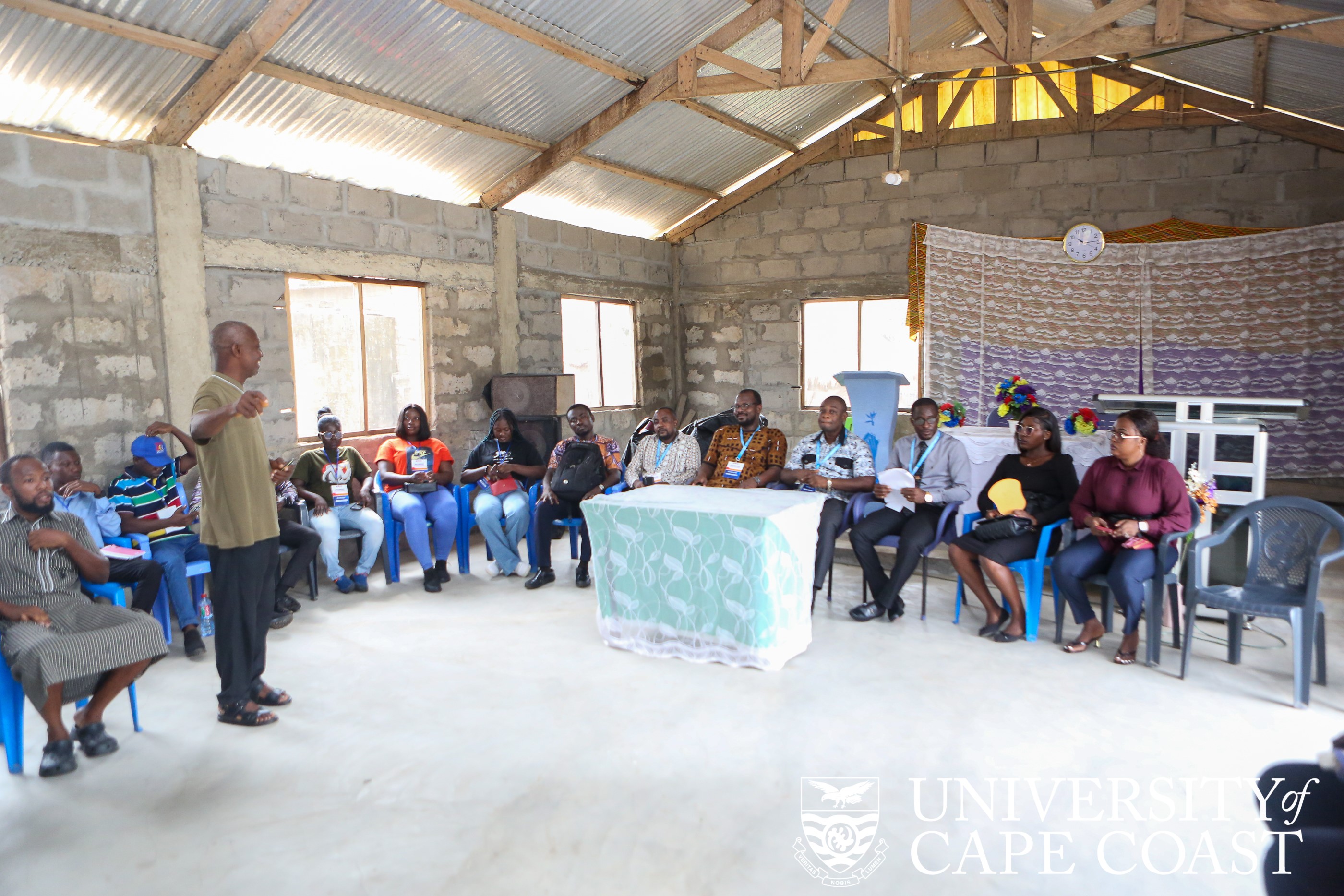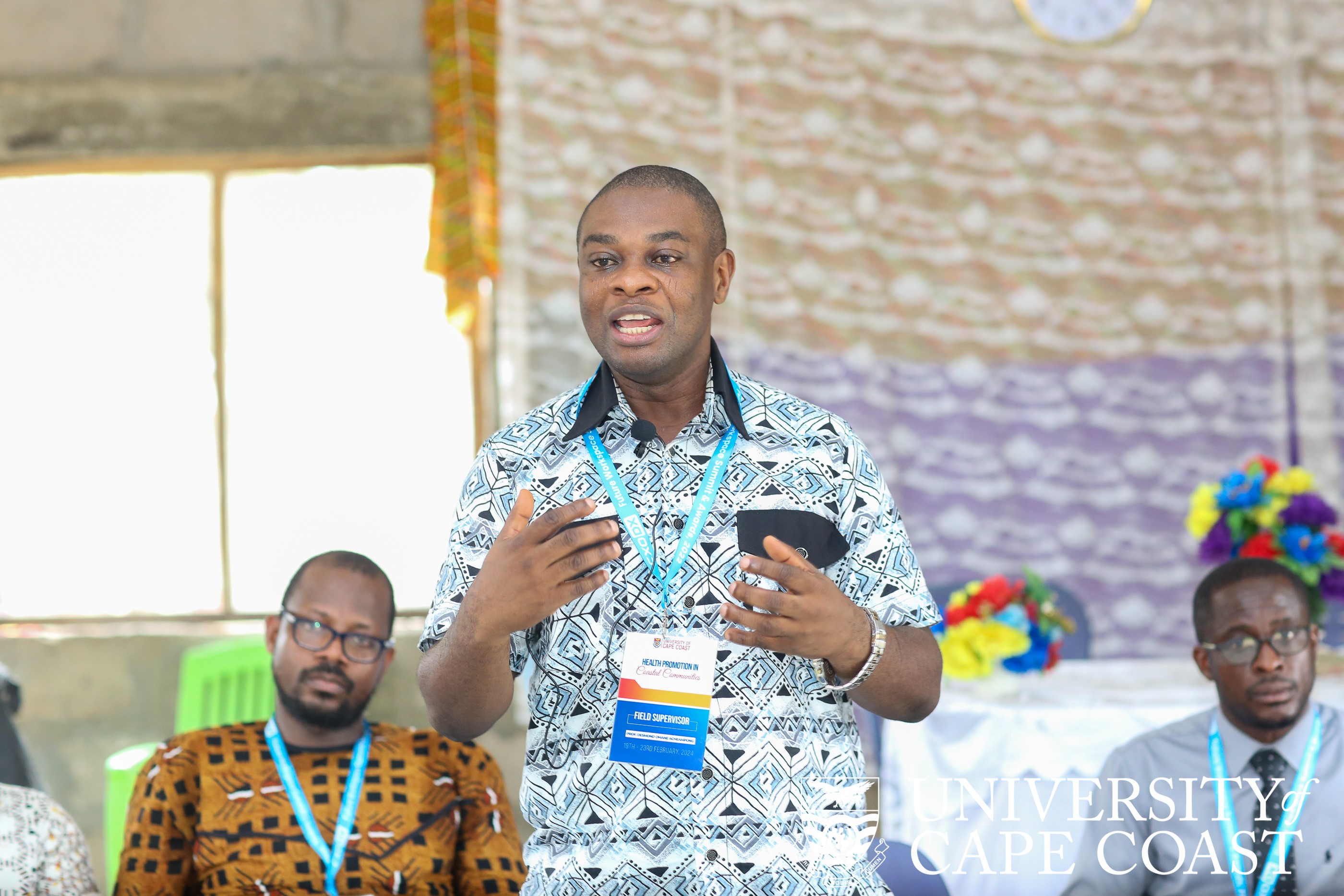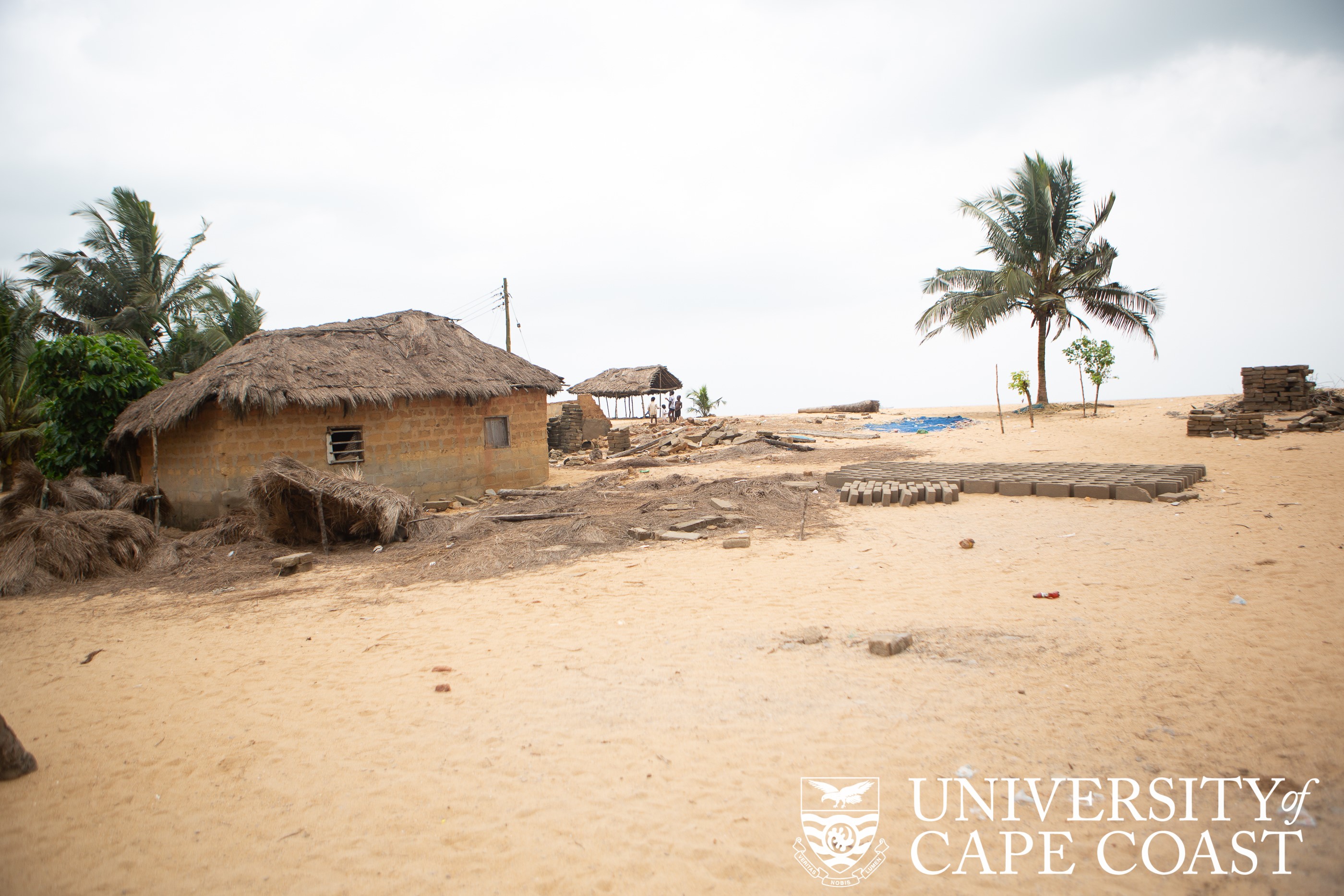The School of Allied Health Sciences (SAHS), in collaboration with the Africa Centre of Excellence in Coastal Resilience (ACECoR) and Directorate of Research, Innovation and Consultancy (DRIC), has embarked on a health sensitisation programme at Anlo beach in the Western Region.
The programme formed part of a collaborative project by SAHS, ACECoR and DRIC to promote healthy lifestyles among dwellers in selected coastal communities in the Central and Western Regions of Ghana.
The project aims to identify the health needs of identified communities through a community engagement study model to implement suitable and targeted interventions to promote healthy coastal communities and thereby improve the local economy for better livelihood.
The coastal districts for the project are Mfantseman, Cape Coast, Elmina, Sekondi-Takoradi, Shama, and Ahanta West. Within these districts, twelve communities were visited, namely: Abandze, Biriwa, Amanful, Anaafo, Elmina, Ankwanda, Anlo Beach, Abuesi, Ngyiresia, New Takoradi, Funkuo, and New Amanful.
During a mini-community engagement durbar, the Dean of SAHS, Prof. Desmond Omane Acheampong, noted that the community-based approach was adopted to ensure that their interventions were impactful, sustainable, and effective for the communities under study. He indicated that plans were underway to seek support from the World Bank and other funding bodies to ensure the successful implementation of the project.
Prof. Acheampong assured the gathering that the community members would be actively involved as major stakeholders of the project to ensure that their standard of health improved significantly.
“A collaborative intervention plan will be developed to improve the health and well-being of members of the community,” he added.
A Research Fellow at DRIC, Dr. Alex Boadi Dankyi, who shared some preliminary findings from the scoping phase of the project, indicated that the most prevalent diseases along the coast were identified as malaria, upper respiratory tract infections, skin infections, kidney conditions, and liver conditions, among others.
He noted that several underlying factors contributing to these health issues, included bushy surroundings, choked lagoons, poor personal hygiene, inadequate nutrition due to poverty, reluctance to use mosquito nets, open defecation, and limited access to education.
Assessing the level of healthcare utilisation, specifically antenatal and postnatal care, the researchers discovered a concerning trend of low participation in these services across almost all the districts with postnatal attendance being particularly poor.
Dr. Dankyi noted that engagement with the health facilities revealed that many community members preferred traditional birth attendants due to cost considerations.
He took the opportunity to commend seven research assistants for playing significant roles in the scoping phase of the project. They are Mr. Michael Gariba, Ms. Sandra Asiful, Ms. Antoinette Bordoh, Ms. Francisca Mawuena Dzamesi, Mr. Meshack Kweku Davies and Mr. Joshua Hotuabu.
A shot of a section of the Anlo beach in the Western Region
Among the communities visited, Anlo beach stood out due to the continuous challenges faced by its residents.
On his part, the Secretary to the Council of Elders of Anlo beach, Mr. Nobel King Dogbatey, explained that tidal waves had displaced over 800 people and washed away about 200 houses in recent months. That, he noted, served as a poignant reminder of the urgent need for interventions to address the health and resilience of the coastal communities.
Source: Documentation and Information Section-UCC



